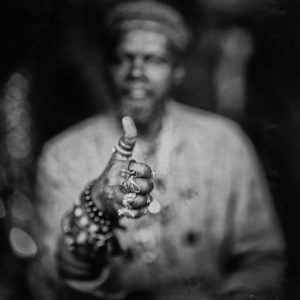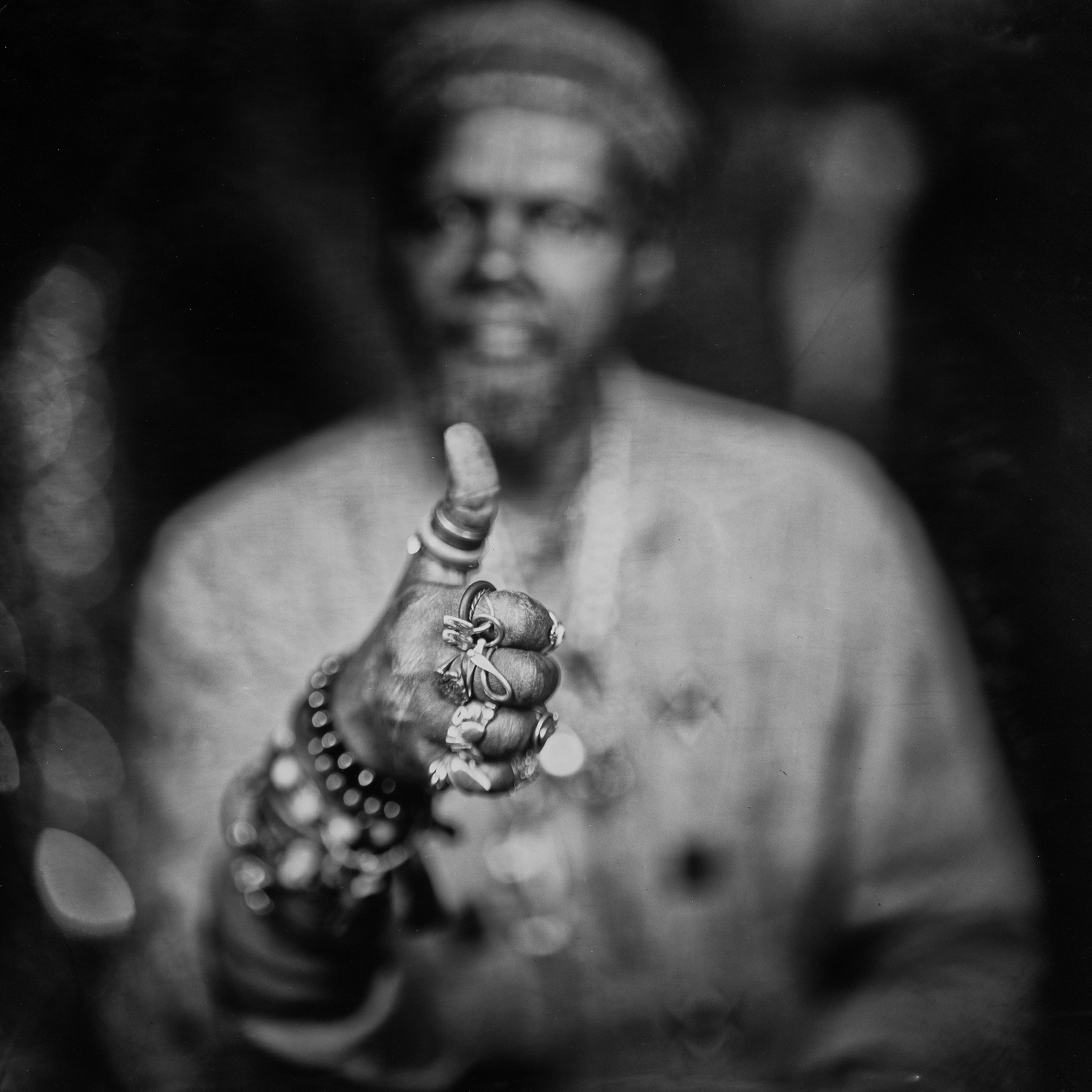Lonnie Holley 
MITH
JAGJAGUWAR
8/10
Lonnie Holley has been recording music and creating art for more than half his life. Considering that he was born in the middle of the twentieth century, that’s a fairly late start. His early years are self-described as itinerant, chaotic, and filled with struggle. Years of self-taught musical skills, performance, and art pieces later, however, resulted in actual time in a recording studio (his first), and gave us the powerful, nearly sui generis Just Before Music in 2012.
These songs were largely comprised of single-chord explorations on synthesizer and Holley’s own deeply resonant voice—a sort of gospel cry mixed with the muddied mystery of Arthur Russell. Lyrically and musically, he was working in an improvised space: the long pieces are minimalist drones where Holley can sing/talk about myths and Earth and technology, sometimes with the pinpoint focus of a preacher who has his eyes on the prize, sometimes with the puzzlement and vehemence of a first-year college kid.
The six years since that debut have resulted in MITH. One can only imagine the sort of strange experiences that passed through Holley in that time. Here is a man in his late sixties touring with Deerhunter and Animal Collective—a success by virtue of his talent and vision, whose evolving improvisations are at odds with almost the entire current musical climate.
What MITH says is that Lonnie Holley is disturbed, possibly angry. For the first time, there’s a spark of focus beyond the eternal and natural world he’s often inhabited, and he’s looking at America in 2018 and putting a name on it. The song “I Woke Up in a Fucked-Up America” has a dark, militaristic slant against piano and synth waves. Holley’s voice, typically filled with awed mysticism, is gravelly and hard. The track builds into a kind of free jazz juggernaut—a state of the nation.
“I’m a Suspect” leads off the album with a familiar chime, but it’s not long before you start to feel the bite in lyrics like “the chain gang games are still the same.” The loss and anger he conveys in brief lines and layered vocals gives the album an extra urgency. Only Holley could find a way to couple the lyrics “suspect in America” with “dust speck in the Universe”—connecting his mysticism with daily reminders of brutality.
Calm electronics still provide a lot of the backdrop, but this album feels more drawn to the elephant in our nation’s ugly-ass living room: the regression of the rights of black Americans as approved by our government. Holley’s callbacks to slavery, fear, and darkness feel necessary, but he is a spiritualist at heart and does not deliver an album without hope. In tracks like “Back for Me,” “There Was Always Water,” and especially “Sometimes I Wanna Dance,” Holley has embraced a backing band in lieu of his usual man-alone set-up, and the result is a collection of glowing, jazz-tinged soul showcases—a little off-kilter, giving you an excuse to shake off those dying blues and just move to the music for a little while.







